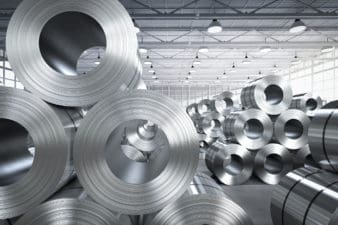Could China, the world’s second-largest economy, be on the verge of an economic meltdown?
While this extreme claim appears to be far-fetched, recent economic data from China highlights that its economy is slowing at an alarming rate. This certainly doesn’t bode well for the outlook for commodities and mining stocks. It also means that the somewhat bold claim by some economists that we have just witnessed the end of the greatest commodity boom in human history could just be true.
Now what?
China’s economic growth has slowed at an astounding rate over the last year to now be at its lowest point since the global financial crisis, and there are signs that this trend will continue.
Recent economic data indicates that activity in two economic sectors that are key drivers of economic growth continues to contract.
China’s real estate and construction sector remains caught in a contracted slump with no end in sight. For the first 10 months of 2015, investments in real estate plunged to a 16th of where it was at the start of the year, and the decline in investments will continue for some time yet.
You see, not only did China massively overbuild at the height of its economic boom, but the rate of urban to rural migration has slowed in recent months.
These two factors combined mean that there is sufficient housing to last for years; some cities have skylines dominated by the skeletons of incomplete or empty residential towers.
Then for November of this year, industrial activity contracted for the ninth straight month. This is of significant concern for the economy because this contraction has continued despite Beijing engaging in a long sequence of stimulus measures, including six rate cuts over the last year.
Industrial profits are also in decline, and this acts as a considerable disincentive for investing in the manufacturing sector.
As a result, industrial activity will more than likely continue to contract for the foreseeable future, while the rate of new employment will also fall. Given that this sector is probably the greatest employer of unskilled labour, it will trigger a further decline in the rate of rural to urban migration. This means that demand for residential properties in major cities will contract further.
So what?
With these two sectors being among the two largest consumers of commodities such as iron ore, steel-making coal, copper, and zinc globally, it bodes poorly for the fortunes of coal and metals miners. This means that any rebound in the fortunes of miners such as Teck Resources Ltd. (TSX:TCK.B)(NYSE:TCK), First Quantum Minerals Ltd. (TSX:FM), and HudBay Minerals Inc. (TSX:HBM)(NYSE:HBM) is a long way off or may never occur at all.
Some analysts have argued that what is now being witnessed is the new normal, which would mean that none of these stocks will return to the lofty heights witnessed at the height of the commodities boom, even though each company has engaged in massive cost-cutting initiatives.
With crude remaining weak, Teck’s considerable investment in the Fort Hill’s oil sands project makes it even more unattractive, while First Quantum and HudBay remain under pressure from markedly weak precious metal prices.
With commodities set to remain under considerable pressure for some time to come, this is one sector to avoid.





